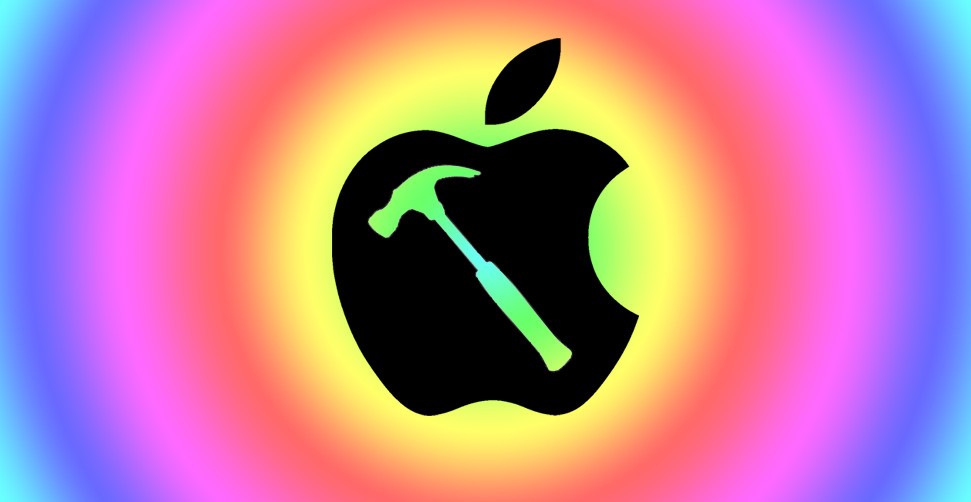
New Mac Setup Notes
-
Install Xcode and the Xcode Command Line Tools.
-
Upgrade the shell to Oh My Zsh.
sh -c "$(curl -fsSL https://raw.github.com/robbyrussell/oh-my-zsh/master/tools/install.sh)" Open ~/.zshrcChange:
ZSH_THEME=”robbyrussell”
To:
ZSH_THEME=“gnzh”Note: zsh aliases git to ‘g’
-
Setup Git Aliases
Open ~/.gitconfig (or create it if it doesn’t exist). Add:
[alias] aliases = !git config –list | grep ^alias\\. | cut -c 7- | grep -Ei –color \”$1\” “#” co = checkout st = status adds = “!f() { git ls-files –modified | grep “\\.swift$” | xargs git add; }; f” addm = “!f() { git ls-files –modified | grep “\\.m$” | xargs git add; }; f” addh = “!f() { git ls-files –modified | grep “\\.h$” | xargs git add; }; f” addsb = “!f() { git ls-files –modified | grep “\\.storyboard$” | xargs git add; }; f” addproj = “!f() { git ls-files –modified | grep “\\.pbxproj$” | xargs git add; }; f” appcode = “!git ls-files –modified | grep “\\.xcscheme$” | xargs git co” l = log –name-status -
Setup git ignore file list (Usually ~/.gitignore_global but check via
git config --list --show-origin)If no ignore files are present create one and link it to git: i.e.
git config --global core.excludesfile ~/.gitignore_globalEdit the file to include the following lines:
*~ .DS_Store ##Cocoapods Pods/* Podfile.lock ## User settings xcuserdata/ -
Install Homebrew
/usr/bin/ruby -e "$(curl -fsSL https://raw.githubusercontent.com/Homebrew/install/master/install)" - Install CocoaPods
brew install ruby sudo gem install cocoapods pod setup pod repo update - Install Xcode Code Formatter
-
Objective-C
brew install clang-formatDownload the Xcode code formatting plugin and open it. Set the formatting of your choice within the tool. Mine (similar to a workplace who’s coding convention I liked) is here:
AlignAfterOpenBracket: true AlignConsecutiveAssignments: false AlignConsecutiveDeclarations: false AlignEscapedNewlinesLeft: true AlignOperands: true AlignTrailingComments: true AllowAllParametersOfDeclarationOnNextLine: true AllowShortBlocksOnASingleLine: false AllowShortCaseLabelsOnASingleLine: false AllowShortFunctionsOnASingleLine: false AllowShortIfStatementsOnASingleLine: false AllowShortLoopsOnASingleLine: false AlwaysBreakBeforeMultilineStrings: false AlwaysBreakTemplateDeclarations: true BraceWrapping : { AfterClass: true, AfterControlStatement: false, AfterFunction: false, AfterObjCDeclaration: false, AfterStruct: true, AfterUnion: true, BeforeCatch: false, BeforeElse: false, } BinPackArguments: false BinPackParameters: false BreakBeforeBraces : Custom BreakBeforeTernaryOperators: false BreakConstructorInitializersBeforeComma: false BreakStringLiterals: true ColumnLimit: 0 IndentWidth: 4 IndentCaseLabels: true KeepEmptyLinesAtTheStartOfBlocks: false MaxEmptyLinesToKeep: 1 ObjCBlockIndentWidth: 4 ObjCSpaceAfterProperty: true ObjCSpaceBeforeProtocolList: true PointerAlignment: Right ReflowComments: true SortIncludes: false SpaceAfterCStyleCast: false SpaceBeforeAssignmentOperators: true SpaceBeforeParens: ControlStatements SpaceInEmptyParentheses: false SpacesBeforeTrailingComments: 1 SpacesInAngles: false SpacesInCStyleCastParentheses: false SpacesInContainerLiterals: false SpacesInParentheses: false SpacesInSquareBrackets: false TabWidth: 4 UseTab: NeverGo to your system’s System Preferences → Extensions
Verify that clang-format in the Xcode Source Editor section is checked.
To setup a keyboard shortcut, open System Preferences, click Keyboard, and switch to the Shortcuts tab.
On the left column, select App Shortcuts, then hit the + button. Select Xcode, enter Format Source Code, and define a shortcut. I use option-command-l.
-